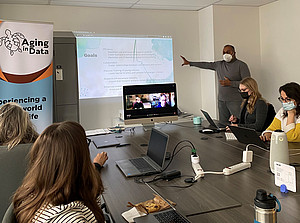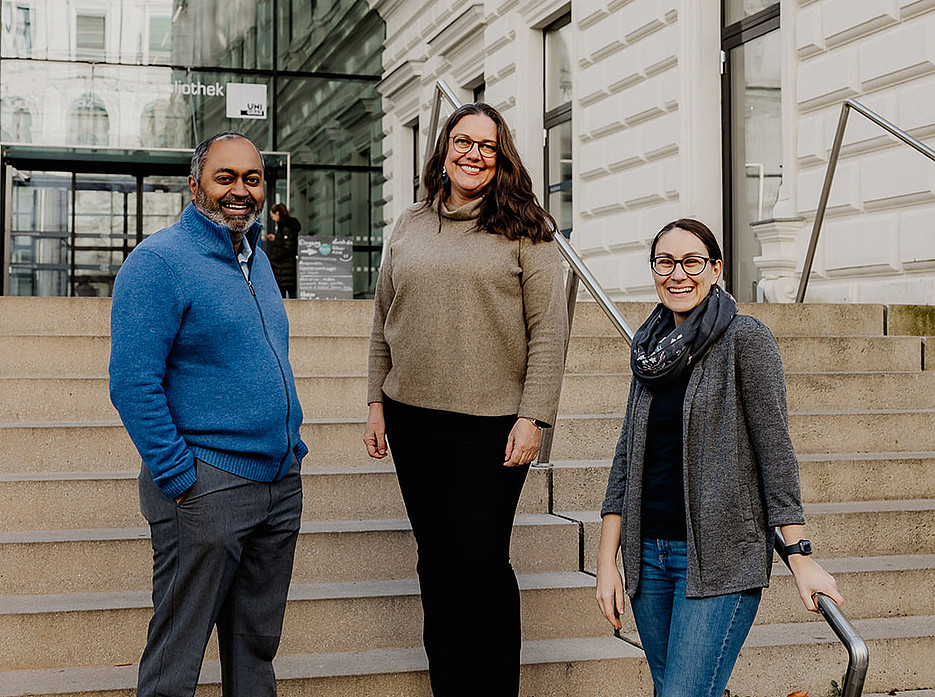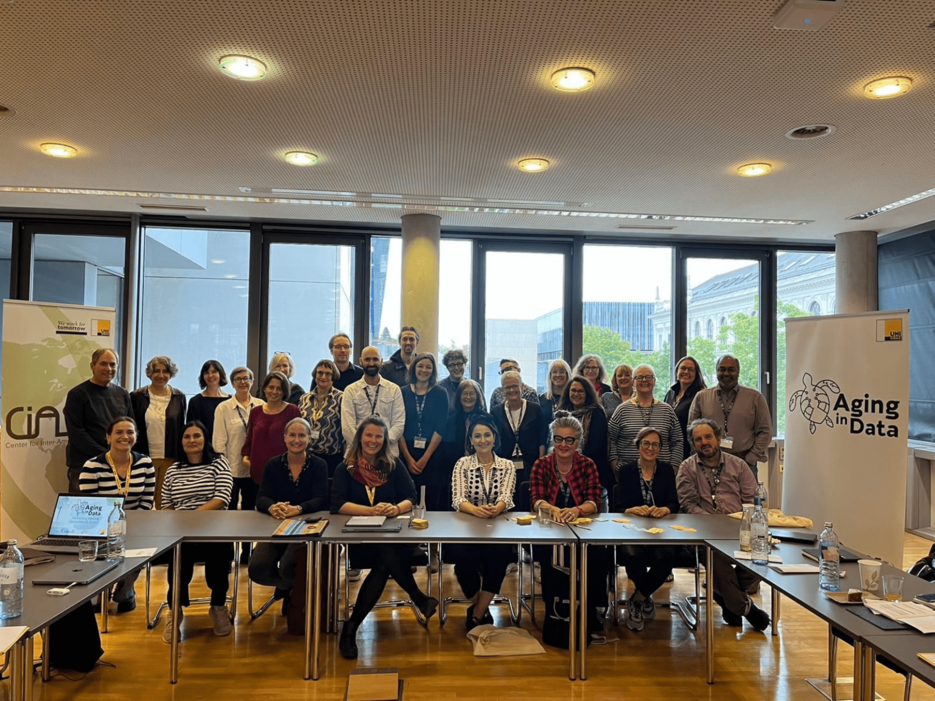Aging in Data
Funded by the Canadian Social Sciences and Humanities Research Council (SSHRC)
Project lead: Prof. Dr. Kim Sawchuck, Concordia University
Aging in Data (AiD) is a research project housed in the ACT Lab at Concordia University in Montreal. It brings together an interdisciplinary network of scholars from ten countries, community-based activists and organizations. We research how age studies intersect with communications, media studies and critical data studies, and explore how an era of unprecedented digital data-gathering impacts and governs how we grow old in our communities. Our shared commitment to social justice brings us to articulate an impactful, innovative, multi-methodological and collaborative agenda with communities of older adults that respond to pressing societal needs.
Project duration: 2022 – 2027
Funding: SSHRC (Social Sciences and Humanities Research Council of Canada)
Project lead: Kim Sawchuk, Concordia University, Montreal, CA
Project members at CIRAC - Uni Graz: Ulla Kriebernegg, Unmil Karadkar, Ursa Marinsek
Website: https://agingindata.ca/about-us/



Projects within the framework of Aging in Data
In datafied societies, algorithms and its capacities to analyze data are somewhat of a modern myth. On the one hand, they are depicted as omnipotent entities that govern our lives through the automated analysis of big data sets, on the other hand, as vulnerable and unstable systems that make wrong decisions or (re)produce bias through flawed data (Ziewitz, 2015). In gerontology and age studies, the interest in algorithms is fueled by enthusiasm about their transformative potential and hopes to increase care giver productivity and efficiency, as well as care safety and autonomy through automated decision making (Lenouvel et al. 2020; Rantz et al. 2015). Critical age studies literature has, however, also identified blind spots in the current discourse on ageing and algorithms and has, e.g., highlighted that the language and concepts used around algorithmic technologies often promise more than can be delivered by these technologies (Lenouvel et al. 2020), that a discourse on age-discrimination and age-bias in big data that feed algorithms is currently missing (Stypinska 2021; 2022) and that the perspectives of older adults on algorithmic decision-making and the collection of big data are only rarely discussed (Chu et al. 2022). The project has two aims: First, it aims to explore the epistemological claims that accompany discussions around algorithms and big data in the field of age studies and gerontology. Second, it aims to re-image ageing with and through algorithms through participatory research with older adults. Drawing on an understanding of algorithms as "stories that help people deal with contradictions in social life that can never be fully resolved" (Mosco 2005), the project asks how the figure of the algorithm is employed in the current discourse in age studies and gerontology, how it has come to matter in this particular field of research, and how stories about algorithms can be imagined otherwise through creative storytelling and co-design with older adults. The project poses the following research questions:
To answer these questions, the project takes two methodological steps. First, it conducts a structured literature review in four international journals for gerontology and age studies, asking how the figure of the algorithm and big data has been discussed in gerontological literature so far. This literature review is an extension of Vera Gallistl's post-doc project that is currently conducted at the Karl Landsteiner University Krems, Austria. Through qualitative mapping and counter-mapping (Hepp et al. 2022), the project then identifies current blind-spots in the gerontological discourse on algorithms. In a second step, the project aims to develop alternative imaginaries of algorithmic ageing together with older adults. In two participatory workshops with older adults (65+ community-dwelling adults, living in Austria), the project presents and discusses the results of the conducted literature and, through co-design methods and creative story-telling, aims to develop an alternative imagination of ageing with and through algorithms together with older workshop participants. Project management: Dr. Vera Gallistl (Karl Landsteiner University of Health Sciences, Krems), Dr. Unmil Karadkar (CIRAC) |
What does digital and data ageism look like?
Building on recent scholarship detailing the intersections of data and oppression, the Exploring Mobile Environments for the Role of Age using Longitudinal Data (EMERALD) project will collect longitudinal data using Android phones in order to explore the changing nature and the extent of ageism in older adults' typical mobile environments. In doing so, the researchers question the role that age plays in defining the types of information that individuals encounter when they use their smartphones.
To answer this question, EMERALD will set up multiple mobile phone profiles, each corresponding to different age adult groups (35, 55, 65 and 75). Each of the devices are then used to perform identical data retrieval activities, such as seeking dining, driving, or entertainment options, finding information about health and fitness, finances, or medical issues. By studying the changing nature of information presented to adults at various points in their lives, researchers hope to understand whether and how age impacts the digital information presented (or kept from) users.
Project leader: Unmil Karadkar, CIRAC
Project collaboration: Ursa Marinsek, CIRAC